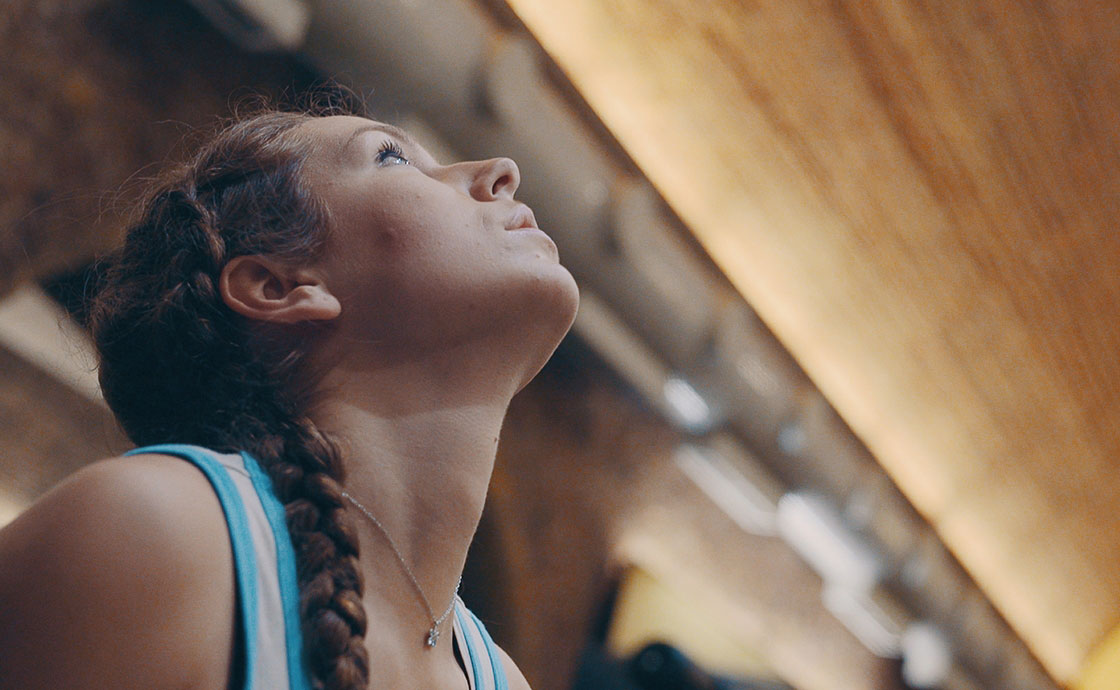Stages of a woman's life
- Overview
Ageing is often shied away from, but it can be a positive thing. Studies have shown that each stage of life comes with unique benefits. Did you know, for example, that your psychological wellbeing can peak later in life, and even into your eighties? In many ways, we peak in later life, but there are measures that can be taken throughout life to optimise health and wellbeing.
Stage 1 | Young women
The journey from girl to young woman sees your body change inside and out. Hormones have a lot to answer for: from changing body shapes and acne to menstrual cycles and libido.
The effects of hormones aren’t just physical. Emotions can run high thanks to explorations in relationships and sex and a growing need for independence.
There are various methods that can help to reduce and manage stress, including mindfulness, meditation, and massage therapy. One of the most beneficial ways to alleviate stress is exercise, which produces endorphins - chemicals in the brain that act as natural painkillers. Exercise also helps to moderate the effects of hormonal changes, boosts body confidence and improves mood as well as the ability to sleep, which in turn reduces stress.
Healthy eating can also be helpful:
growth and development are rapid during teenage years, and the demand for most
nutrients is relatively high. A varied and balanced diet allows your body to
grow and develop properly, balances your mood and provides energy.
The benefits of exercise and healthy
eating are long-term too. Developing a fitness routine and basic nutritional
understanding in your youth can set you up for life. Studies show staying
healthy in your 20s is strongly associated with a lower risk for heart disease
in middle age.
There are upsides to this life stage. Brain processing power has been shown to peak at 18 in some studies, while your ability to remember unfamiliar names peaks at about 22. On a physical level, strength peaks at age 25, and can remain high for the next 10 to 15 years if you maintain regular exercise.

Stage 2 | Career. Family. Fun.
Many women go through important life changes during this phase. You may be settling down with a partner and thinking about children. You may be pregnant or a new mum. Perhaps you’re playing and working hard with a busy career — or any combination of these.
With so many demands, it’s natural to expect a lot from your body. Luckily, in some ways your body is at its peak now: your muscle mass and bone density have never been stronger.
There's lots you can do to maintain this excellent foundation. Healthy eating and a regular exercise routine can help you function at your best and manage your weight. This has pay-offs for your menstrual cycle, fertility, pregnancy, energy, and stress levels too. Establishing a healthy lifestyle will give you a buffer against the highs and lows of this life stage, and maximise the many opportunities it brings.
Stage 3 | Life balance
Many women in this phase find life is a juggle. The demands of a busy career, young children and elderly parents may mean there’s little time left for you. Perimenopause can also begin to cause fatigue, mood swings, insomnia, heavy and/or irregular periods and weight changes.
Of course, looking after your family and career can be rewarding, but if competing demands or fluctuating hormones threaten to tip you off balance, developing some coping strategies can help. A good sleep routine can take the edge off stress and exhaustion, while Cognitive Behaviour Therapy (CBT) techniques can manage problems by changing the way you think and behave.
It’s worth taking action as there’s much to relish during this stage: studies show people tend to do their most outstanding work in middle age.
Stage 4 | Back to you
At the beginning of this stage, most women experience a significant milestone. The menopause can be a physical, mental and emotional upheaval with far-reaching effects. Heavy and/or irregular periods, hot flushes, night sweats, exhaustion, insomnia, mood swings, lapses in concentration, thinning hair, loss of skin elasticity, changes in metabolism and aches and pains are all common.
Alongside hormonal changes, thyroid problems, diabetes, breast cancer, and cardiovascular issues can begin to surface. With all these challenges, it's not surprising anxiety and depression can take hold.
Luckily, you may find you have more resources to lean on during this phase: more time to yourself and a sense of resilience thanks to previous life experience.
While ageing is natural, even a badge of honour for some, exercise and proper nutrition can increase your sense of control and security. Deposits into your ‘health pension fund’ while you’re active and able can help you make the most of the present and set you up for the future. More specifically, it is important to ensure that weight-bearing exercises, such as dancing or hiking, are part of a regular exercise routine to reduce future osteoporosis risk.
Stage 5 | Freedom to explore
With the menopause behind you and retirement on the horizon, this stage of life is full of freedom and possibility.
But stepping into the unknown can be stressful. It takes time to adjust to changes in your daily routine, status, relationships, and financial situation.
This life stage can also throw up challenges on a physical level: cancer, diabetes, osteoporosis, cardiovascular disease, and obesity are common concerns. Loss of libido and functional fitness can also impact your relationships and wellbeing.
Luckily, studies show that you’re better than ever at navigating conflict, understanding other people’s points of view, anticipating change and considering different outcomes at this age.
There’s plenty you can do to make the most of life too: focusing on functional fitness can help you enjoy the new activities you’ve finally got time to explore. Speak to a Personal Trainer about developing a routine that allows you to thrive outside the gym; whether that’s keeping up with the grandkids, enjoying a new hobby or simply carrying the shopping home.
Stage 6 | Experienced. Thankful. Content.
Fitness is relative. At this stage in life, many women live with osteoporosis, arthritis, cancer, incontinence and heart conditions. You should reach out to your doctor if you have any concerns. They will take your health seriously and may be able to help you live independently for longer.
The good news is some studies suggest psychological well-being peaks at about 82. While loneliness and social isolation can be a concern, this age offers many opportunities to spend time with family and friends and try new things.
Meditation, mindfulness, and gratitude practices can help you make the most of your later years and take the edge off challenges you may face.
Meditation has been shown to boost mental clarity, creativity, and stability and increase focus. It can improve mental ability, so is useful for all ages to practice, but at this stage it is particular useful to help protect against age-related cognitive decline.
Meditation can also help to improve pain management, insomnia and feelings of loneliness, while improving circulation.
Simple techniques, such as deep breathing and focusing on the present moment are easy to access. By sitting still, emptying the mind and practising mindful habits, the benefits are available to all.
Summary
The passing of time is not always welcome, but it is inevitable, and the life story of the female body is one of constant change.
By staying informed, seeking help and making wise decisions, it’s possible to thrive at every stage of life.
Last updated Monday 20 January 2020
First published on Monday 24 June 2019

